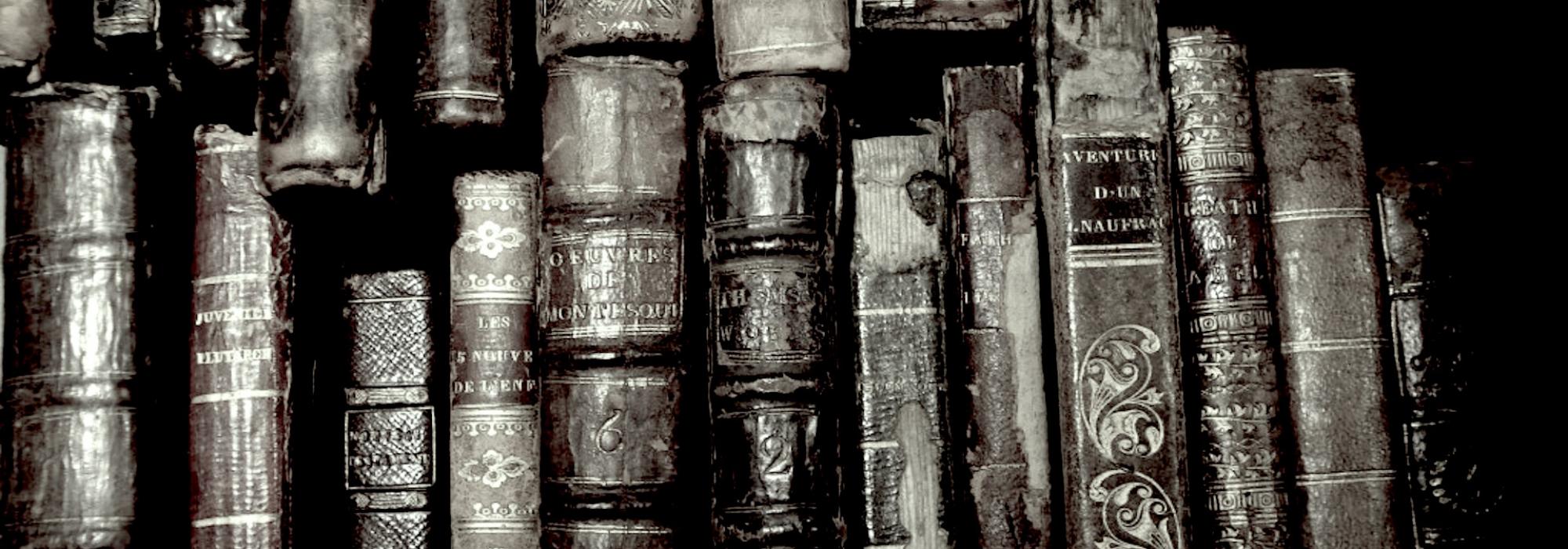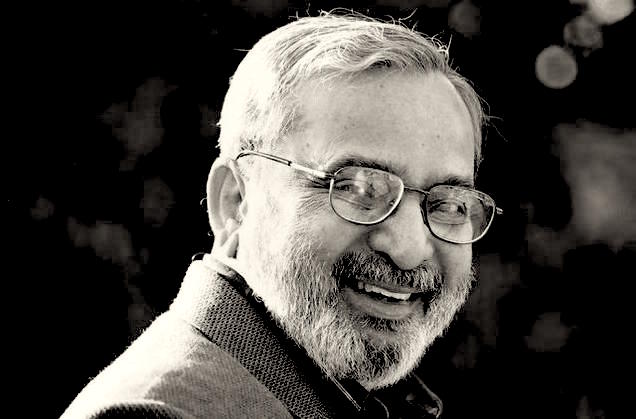Recently, one of my acquaintances well-versed in science and technology posed me a question: “Normally, people like us—meaning those from the fields of either science and technology or others engaged in physical or theoretical studies—don’t typically like to say anything about subjects that we’re not directly familiar with or haven’t sufficiently pursued or made an authoritative study in. And especially on public platforms, we tend to talk even less about these things. But you—writers, poets, litterateurs, aren’t like this. You give out statements every other day on every other topic and in every other manner every other moment; you spout final decisions about topics you have no little idea about in the manner of an omniscient, like a professor. I haven’t seen much of such behaviour in other art forms like music, dance and cinema. Why, in the past, even litterateurs didn’t indulge in this sort of interloping behaviour. This phenomenon has increasingly escalated in the last thirty or forty years. What’s the reason for this?”
This question has struck me as well. And like me, it has bothered several others as well. My esteemed friend’s question is extremely clear, apt, and contemporary. There are certainly several explanations for this. Literature unlike other arts is more society-facing. Its basic ingredient is the human life. Thus all facets and roots of people’s lives are always relevant to a litterateur. His medium is that of word and meaning. It’s clear that “word” means the world of name (or the world of language), and “meaning” means the world of form (or the world of objects). In this light, the aesthetician Bhamaha who lived more than 1300 years ago said this:
na sa shabdO na tadvAchyam na sa nyaayO na sA kalA |
jAyatE yanna kAvyAmgam ahO bhArO mahAn kavEh||
There is no word, meaning, logic, art that can’t be an organ for poetry.
Aha! What a heavy load does the poet bear!
His words are true. Of late, it appears that a rule has emerged that says that it is inevitable for a litterateur to have social responsibility.
Let’s accept all these with varying degrees of pertinence. But shouldn’t we first examine the exact extent of the erudition of these contemporary “litterateurs born to issue statements” on all topics? Indeed, all litterateurs haven’t sipped the nectar of the lotus in the navel of Narayana, whose stomach holds the entire universe. It is definitely possible that there are enough limits to the erudition of even the greatest of the socially-responsive litterateur.
Thus, when we witness the statements and slogans of several contemporary writers endowed with the “aham brahmasmi” attitude, people well-versed in other fields will deservedly have the melancholy-laden suspicion as to whether these worthies have taken the exclusive lease and leadership for the good of the world. Of course, these litterateurs might respond: “but we haven’t prohibited you. Neither do you have any other external obstacles. Given this, instead of blaming us out of jealousy, why can’t you involve yourself in work for the common weal like we’re doing?” True. One can do this. But then the same question faces us—do we possess the requisite erudition and practice? This is a kind of introspection, self-criticism.
Not just that. The reason why predominantly litterateurs are involved in the industry of speaking, writing, declaring, and quarrelling about every sundry topic whether they have the necessary qualification or no is because of their command over language, their camaraderie with the media, and typical opportunities for leisure. Compared to any other class of people in society, litterateurs are typically endowed with a certain natural flair for writing and oratory. Besides, they’ve studied language as a separate subject.
Language is a powerful equipment. One can contact anybody, communicate anything using language. A good number of thinkers and scientists don’t have this convenience. Besides, writers who can create literature like stories, poems, and novels that deeply appeal to the emotions of the common person as well as write literary criticism will obviously know the pulse of the world. Thus, they will easily use in the “real” world this felicity they have in the world of emotion. Although this is not wrong per se, when there is a lack of accurate thinking and a poverty of subject, merely manipulating emotions constitutes the misuse of medium.
Besides, language alone isn’t everything. One needs the erudition to lucidly convey any chosen subject(s) inside out. Our misfortune is the fact that today there exists a perverse situation where, although there’s no “subject,” there can exist “language.” Thus when the prostitution in the realm of subject is applied in the realm of language, ordinary people fail to detect it. This is an indirect assault on language as well. But most people don’t have the patience to think about these things deeply. Therefore, whatever litterateurs write about non-literary topics—even without honest study—appears authoritative.
Apart from this, the other issue to ponder about is the fact of how the media and other public platforms have closely fallen in the domain of litterateurs. In general, the press and other mediums of writing have emerged as an extension of the world of literature. In several cases, there’s a sort of inseparability between the editorial sphere of the newspapers and litterateurs. In other (specialized) domains, when the experts in their respective domains enter the world of newspapers they do so in the capacity as specialist writers in said domains, or come in as writers in papers and magazines dedicated to said domains.
But where litterateurs are concerned, there is typically a disquisition on pretty much everything. Specifically, litterateurs easily embark on speaking and writing about religion, dharma, politics, society, and culture with an attitude of authority despite lacking the maturity that comes from erudition and experience. Although these areas have a close relationship with (human) emotions, they also have their own unique complexities of logic and corpus of scholarship. And here again, misuse of language and the media does its lethal dance. Moreover, it’s litterateurs who can supply the newspapers with ample daily fodder in colourful language, and not people from other fields. Equally, from the perspective of circulation, newspapers too, require racy and spicy matters. Controversy is absolutely essential for this. And the life-support of controversy requires the water and manure named ignorance and arrogance.
Thus, in numerous instances, a lot of the stuff that newspapers portray as authoritative using the pen of litterateurs will appear as unenlightened and far from the truth to the eyes of experts in their respective domains. Not just that. The world rests at the bottom of the ocean of language and speech. Thus, the first preference here is for orators. In any public functions or platforms, litterateurs occupy the high seat (of late, the heads of religious institutions and politicians have also jumped into the competition arena and have posed an extreme challenge. But the situation has only further worsened because of this). And so, as usual, isn’t it inevitable for the (news) reports of such programmes to contain the glittering oratorial gems of these litterateurs?
Moreover, the place of litterateurs stands unchallenged as being the foremost among all those preeminent folks who the media contacts whenever there’s a calamity or an extraordinary development (with regard to political-social-public life). The reason for attaining this top spot—apart from the aforementioned talent for communication—is the unfettered intellectual flexibility that these litterateurs possess. Besides, our distinguished litterateurs are endowed with enormous leisure and the temptations of the tongue (this problem exists among several folks of the “Bhadralok,” but we can examine that issue some other time).
Given this situation, to what extent can the world hear the lament of my scientist friend? If one were to list the instances of the kind of havoc that the half-baked knowledge of these litterateurs has wreaked, it will take up a mammoth volume. One may recall a few of them just by the way.
One of our Jnanapith award winners gave the commandment that the concepts of monotheism and rejection of a personal God in Islam provided the inspiration for the Advaita philosophy of the Upanishads and the commentaries of Shankaracharya. He continues to propagate this and the newspapers continue to publish it (poor thing! Forget him, one of our nation’s First Citizens had dropped one such pearl at a public function in Kerala and earned applause).
In a book, another litterateur had attributed to Shankaracharya atrocities committed in a far later period by the followers of another religion without bothering to even read the extensive research related to Shankaracharaya’s period (The research of a top-ranking scholar of history who had established the truth in this regard about fifty or sixty years ago doesn’t receive this kind of publicity).
A certain eminent poet ignorant of the fact that there’s no relation between Vaidika Chhandas (Vedic Metre) and Shiksha (Phonetics) wrote and published poetry in “Vaidika Chhandas.”
Another famous scholarly writer has been incessantly proclaiming that there exist theories of physics in the texts of the founder of his sect which expound the atom-division theory, theories which defy gravity, and so on.
One of the preeminent scholar-writers of Hindi literature claimed that he was committed to science and communism. In the same breath, he wrote stories and novels that contain enormous amounts of information that’s far from the truth, motivated only by jealousy and hatred.
The news of the mayhem unleashed in the name of environmental activism by a lady writer and the consequent publicity that she garnered from it is well-known. The ongoing discussion regarding her actual knowledge about the environment and the law is also equally well-known.
And who’s aware of the research-bereft columns being written on all topics—from the atom to the Brahman—by a vintage Delhi-based journalist and writer? There are scores of instances of writers from Andhra who’ve churned out mindless books on history, philosophy, science, technology, and art, force-fitting these subjects into the frame of their pet theories of atheism or theism. Kannada also shares this sorry fate.
I have admiration and respect for the various literary achievements of several of the writers mentioned here. Besides, I have no personal prejudices towards any of them. My objection is towards their authoritarian attitude of publishing ill-informed writing and making grand pronouncements on topics in which they haven’t undertaken any in-depth study or obtained the maturity that comes from honest scholarship. This is why I’ve considered only the seriousness of the subject and refrained from naming them.
There’s no rule that says that a person who’s attained greatness in a specific sphere must attain equal eminence in another or several other areas; the possibility too, is less. But the tragedy is that both people and the media continue to inflict massive damage on the world by disseminating this “philosophical revolution” and “harassment-by-realism.”
To cite some examples, Nehru’s “Discovery of India” is by no means a definitive or scholarly work of history. Because Gandhi appreciated M.S. Subbulakshmi’s music doesn’t automatically render the equation that her music is great. Although Muttuswami Dikshitar was a good (musical) grammarian, in several places, his lyrics don’t have linguistic purity as well as that of Alankara (figure of speech). Kautilya’s “Arthashastra” did not become a great work only because Indira Gandhi praised it—a common sense fact that the emotional camp followers of a writer (or eminent people in other areas) forget. The media too creates a halo of definitiveness around such illogical and unexamined matters.
For this precise reason, the erudition and serious opinions of such greats as R.C. Majumdar, S. Srikanta Sastri, S.R. Rao and others of equal eminence in various fields haven’t received the value and the scope they actually deserve. Let’s hope that at least from now on, the word of honest and extensive learning gets its due, and the status and position of the person saying it become trivial.
Translated by Sandeep Balakrishna from the original Kannada article titled "Sahitigala Sarvagnatvakke Chikitse Bedave?" in the book, "Bhaashabhrungada Benneri."

















































